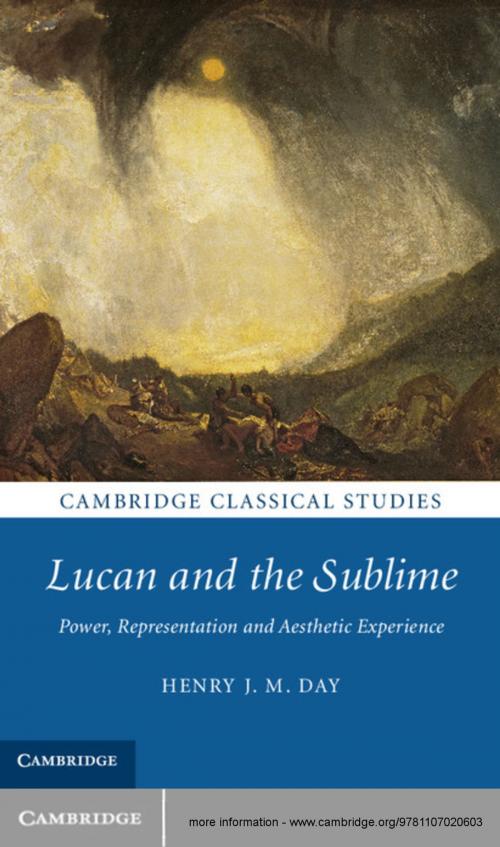Lucan and the Sublime
Power, Representation and Aesthetic Experience
Fiction & Literature, Literary Theory & Criticism, Nonfiction, Religion & Spirituality, Philosophy, History| Author: | Henry J. M. Day | ISBN: | 9781107301443 |
| Publisher: | Cambridge University Press | Publication: | January 24, 2013 |
| Imprint: | Cambridge University Press | Language: | English |
| Author: | Henry J. M. Day |
| ISBN: | 9781107301443 |
| Publisher: | Cambridge University Press |
| Publication: | January 24, 2013 |
| Imprint: | Cambridge University Press |
| Language: | English |
This is the first comprehensive study of the sublime in Lucan. Drawing upon renewed literary-critical interest in the tradition of philosophical aesthetics, Henry Day argues that the category of the sublime offers a means of moving beyond readings of Lucan's Bellum Civile in terms of the poem's political commitment or, alternatively, nihilism. Demonstrating in dialogue with theorists from Burke and Kant to Freud, Lyotard and Ankersmit the continuing vitality of Longinus' foundational treatise On the Sublime, Day charts Lucan's complex and instructive exploration of the relationship between sublimity and ethical discourses of freedom and oppression. Through the Bellum Civile's cataclysmic vision of civil war and metapoetic accounts of its own genesis, through its heated linguistic texture and proclaimed effects upon future readers and, most powerfully of all, through its representation of its twin protagonists Caesar and Pompey, Lucan's great epic emerges as a central text in the history of the sublime.
This is the first comprehensive study of the sublime in Lucan. Drawing upon renewed literary-critical interest in the tradition of philosophical aesthetics, Henry Day argues that the category of the sublime offers a means of moving beyond readings of Lucan's Bellum Civile in terms of the poem's political commitment or, alternatively, nihilism. Demonstrating in dialogue with theorists from Burke and Kant to Freud, Lyotard and Ankersmit the continuing vitality of Longinus' foundational treatise On the Sublime, Day charts Lucan's complex and instructive exploration of the relationship between sublimity and ethical discourses of freedom and oppression. Through the Bellum Civile's cataclysmic vision of civil war and metapoetic accounts of its own genesis, through its heated linguistic texture and proclaimed effects upon future readers and, most powerfully of all, through its representation of its twin protagonists Caesar and Pompey, Lucan's great epic emerges as a central text in the history of the sublime.















